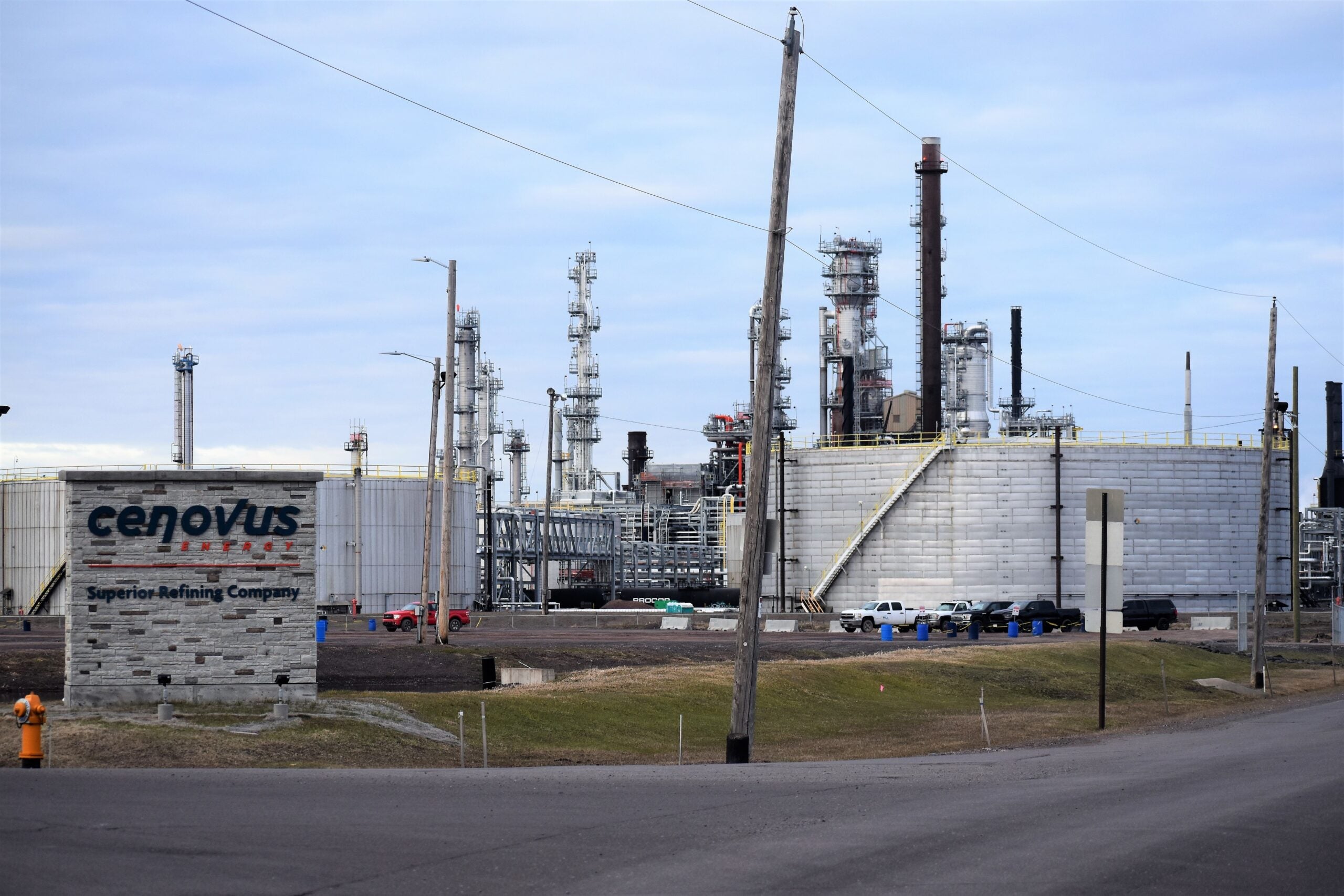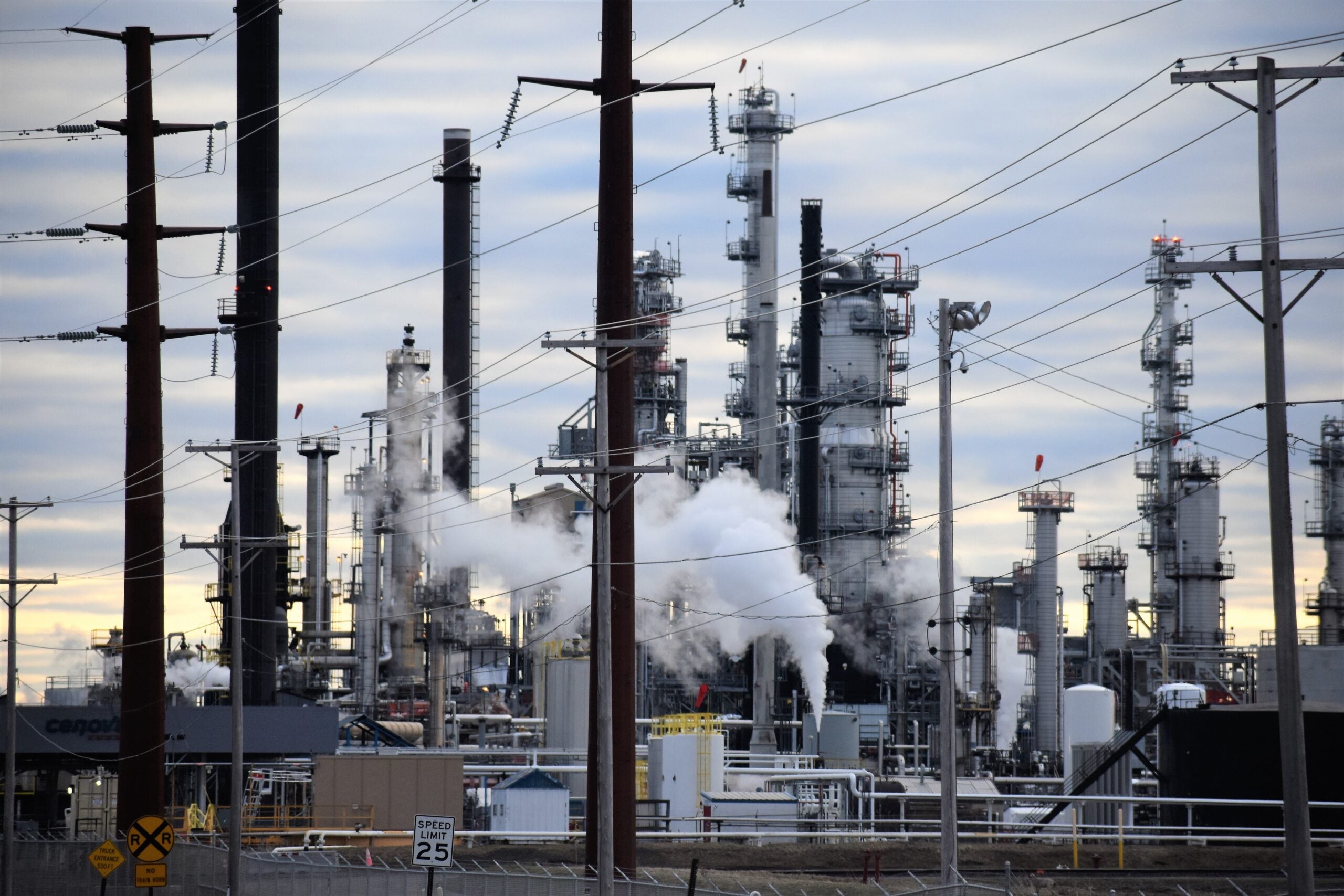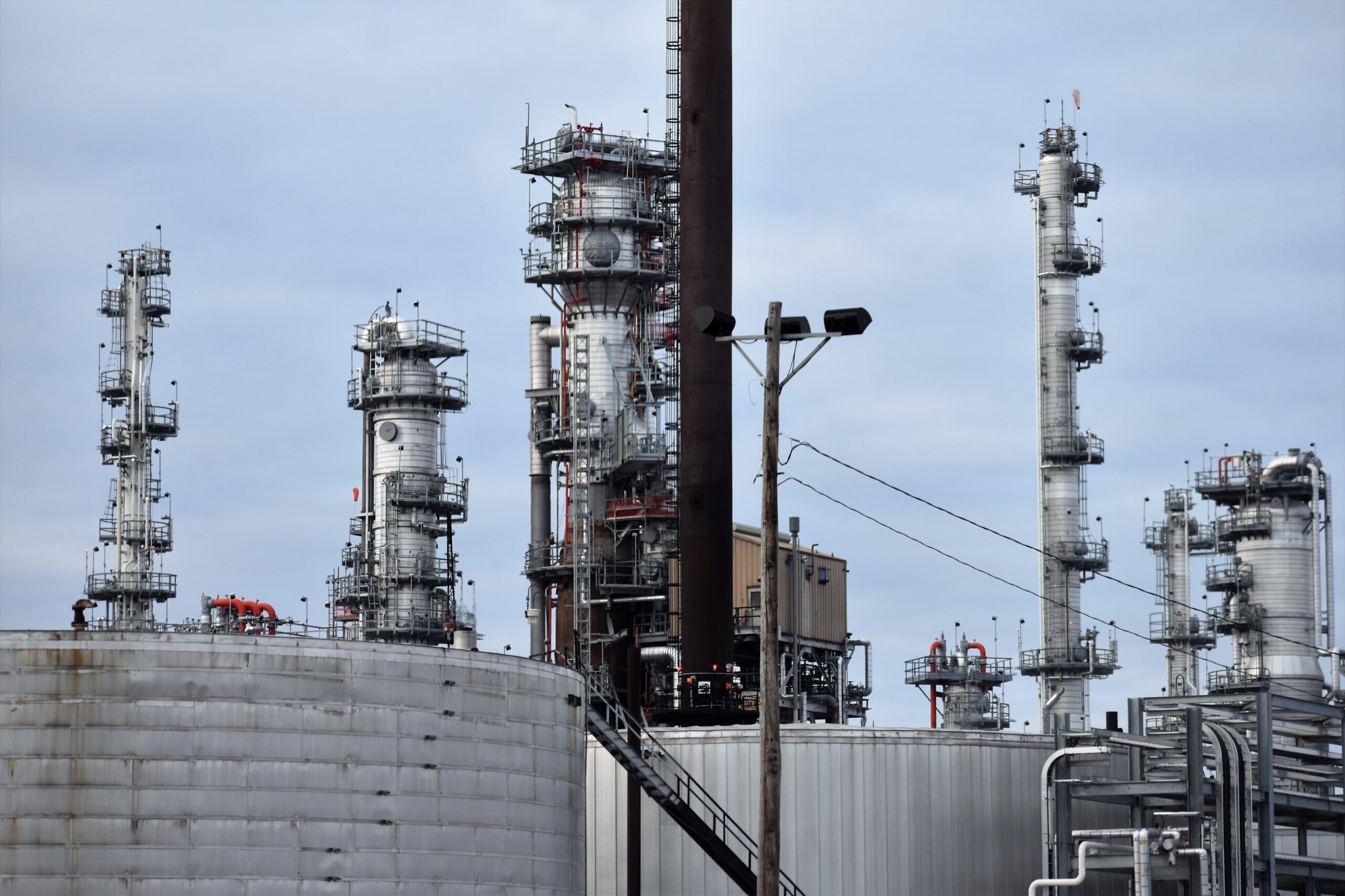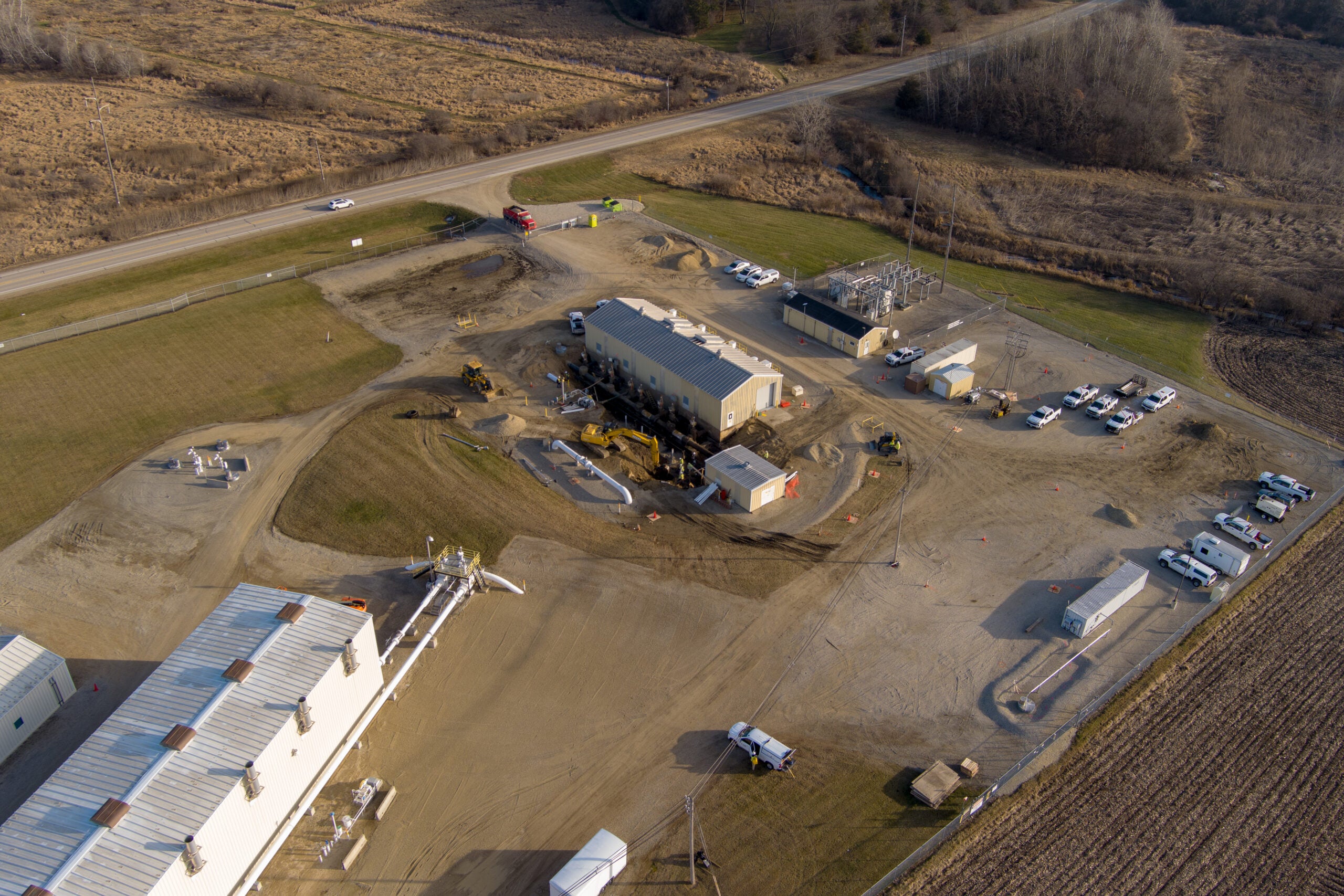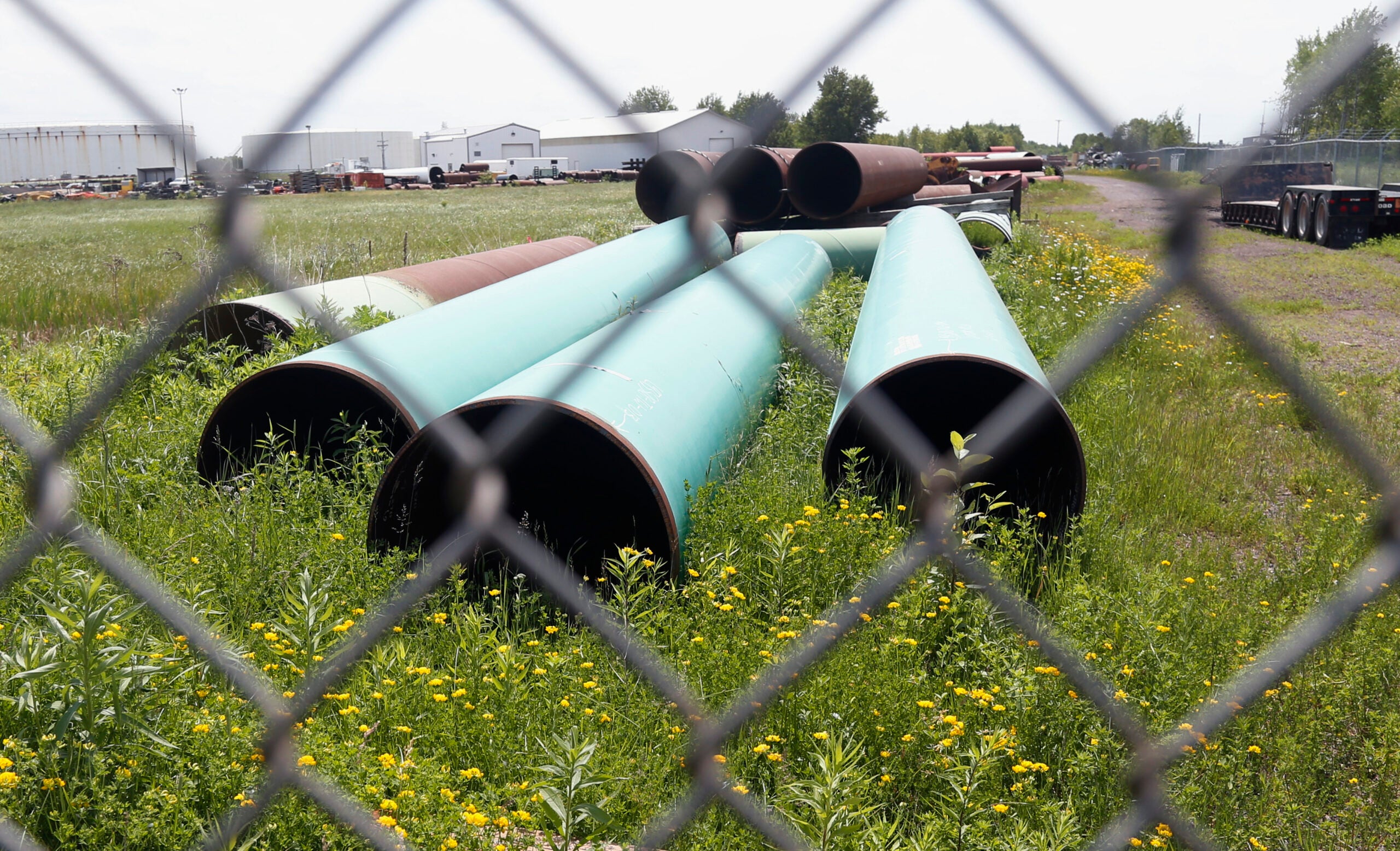The Superior Fire Department was called to a leak of fuel oil vapor at Wisconsin’s only oil refinery Thursday afternoon. It marks the second leak at the Cenovus refinery this week.
A Cenovus spokesperson said the incident led to an equipment shutdown, and all non-essential employees have been evacuated from the site as a precaution. Around 350 people work at the plant. Authorities say there were no injuries, and there’s no danger to the public.
Fuel oil vapor was leaking from a flange in the fluid catalytic cracking unit that’s used to make gasoline at the facility, according to Superior Fire Battalion Chief Steve Miner.
News with a little more humanity
WPR’s “Wisconsin Today” newsletter keeps you connected to the state you love without feeling overwhelmed. No paywall. No agenda. No corporate filter.
“They requested the tower in response because (the leak) was elevated up higher in the column,” Miner said. “Once we arrived on scene, they had already established some control measures with their (emergency response team).”
The refinery’s emergency response team used water fog streams and steam to disperse petroleum vapors, according to a news release. The city’s fire crews conducted air monitoring at the plant, but no vapors were detected.
The spill comes just a day after a propane leak occurred at the facility. The Wisconsin Department of Natural Resources has been notified of the incidents, according to Douglas County Emergency Management Director Dave Sletten.
“We are focused on safe and reliable operations,” a Cenovus spokesperson said in a statement. “The two incidents are not connected, and we’ll undertake thorough investigations to determine the causes.”
In 2018, an explosion and series of fires rocked the Superior refinery. The blast injured nearly three dozen workers. The explosion prompted fears of a hydrofluoric acid leak, causing the temporary evacuation of around 2,500 residents.
No such release occurred but a tank containing hot asphalt was punctured by debris from the explosion, spilling 17,000 barrels into the refinery that caught fire and burned for hours. The explosion caused roughly $550 million in damage to the plant.
A final report from the U.S. Chemical Safety Board found the refinery’s lack of safeguards in the fluid catalytic cracking unit — including a severely eroded valve — led to the explosion during a maintenance shutdown in 2018. The refinery has since installed a new unit, control system and valves.
As of late July, the refinery had yet to begin running the unit, saying it was working through “normal startup issues.” The refinery has faced multiple delays in resuming operations due in part to the COVID-19 pandemic, after which initial costs to rebuild the refinery tripled to $1.2 billion. Cenovus has previously said it expects insurance proceeds will cover most of those expenses.
The refinery typically produces gasoline, diesel and asphalt with a capacity of roughly 50,000 barrels per day.
Wisconsin Public Radio, © Copyright 2025, Board of Regents of the University of Wisconsin System and Wisconsin Educational Communications Board.

